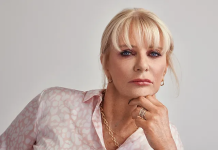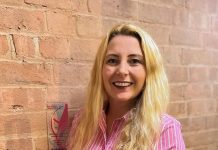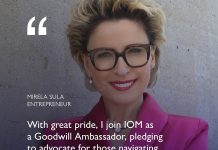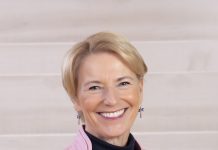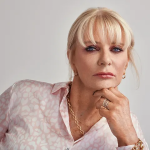Working as a development economist upon a background of development and fiery competition Kalnisha has created a methodology for local economic development that proves how much innovation she has harnessed on her journey.
Kalnisha’s unique methodology focuses on constructing community balance-sheets and focuses its attention away from the needs-driven approach to developing. This second point is due to the fact that Kalnisha’s observations taught her: needs-driven approaches create dependency cultures.
When tackling difficult and varied economic problems, Kalnisha’s strategy is to remember her why—what drives her. She then releases the rest, and all points of failure to the Universe.
Kalnisha’s mission towards sustainable development is important because the models of economic expansion based on extractivism have left Africa and the global south in dire poverty concerning energy and its resources.
Read more below, more of an interesting and comprehensive account of Kalnisha’s journey.
My ultimate intention is to break the cycles of poverty and stagnation – and contribute to meaningful economic participation and growth. — Kalnisha Singh
What have been some of the most successful projects you have managed in your career?
This question is an interesting one.
Instinctively, I think you would want me to talk about the big budget projects that have been executed seamlessly – bringing with them great prestige, with some pomp and circumstance. There have been some – but I wouldn’t count these as my greatest successes, even though they may have been reputation-building and profit-making.
I work as a development economist in a developing market. In this economic situation – as with most – if you have the right resources and enough money, successful outcomes are easy to come by.
The most meaningful and impactful projects I have worked on – are those that have had little or no budget and/or resource availability. Where I was forced to use my understanding of the world, social dexterity, leverage my networks and knowledge to meaningfully change the direction of someone’s life.
One such project is Women Energy Connect (WE Connect) – a platform working to build an inclusive and diverse renewable energy industry on the African continent. (WE Connect_RESA LinkedIn)
I also work with marginalised Youth from impoverished communities – working on concepts of Identity and Purpose in order to unlock intrinsic motivation. Over the past 20 years, I’ve contributed to and facilitated education programmes, bursaries and economic access for thousands of young people across Southern Africa.
I find that, in my line of work, success is often fraught with failure – and conversely failure with many successes.
I used to get very caught up in belabouring the failures – but recently I’ve renamed them “deviations”. Deviations from the plan are inevitable – but as long as we make a meaningful, lasting, positive impact on the people we work with; there will always be success.
Could you tell me about a time when you had to develop an innovative solution to a problem?
My country and continent are burdened with 3 severe socio-economic challenges – poverty, unemployment, and inequality. Additionally, it is a well-known fact that the developing world is disproportionately affected by the impacts of climate change.
Traditional, mainstream, approached to Economic Development have done little to help the emerging markets emerge. As such, I have had to develop and refine an approach to local economic development that is rooted with the intention of driving this emergence.
I believe that my approach to local economic development is innovative in its entirety. The methodology I developed over the course of the last 20 years is comprises 3 elements: Catalysing Human Capital + Asset-Based Growth = Sustainable Community Development.
The methodology recognizes communities as diverse and capable webs of opportunities and assets. However, I also recognise the reality that the core assets of our communities – the people – are operating from a place of trauma, scarcity, and deprivation, and are thus not able to recognise and unlock their own potential.
I have found that it is imperative to work to release instances of generational trauma and limiting beliefs at an individual level, and thereby catalyse human capital in the communities.
The second element of my development methodology is Asset-Based Growth. Asset-Based growth is a movement away from “needs-driven” approaches to development – and a focus on building community balance-sheets in order to construct a basis of wealth.
The challenge with the traditional needs-based approaches is the focus on deficiency, and the increasing community reliance on external parties to “save” the situation. In these traditional models, communities are likely to become dependent on developmental support and are ill-equipped to deal with any situation where that support ceases. In creating a dependency culture, individuals’ ability to take control of their own lives is restrained, and whole communities become beholden on developmental aid.
I’ve identified the role of the development practitioner as that of catalyst, rather than solution-giver.
I take the view that we cannot impose Development, however we can facilitate it by helping individuals and communities to ignite their intrinsic motivation and recognise the opportunities in their immediate environment.
My ultimate intention is to break the cycles of poverty and stagnation – and contribute to meaningful economic participation and growth.
What methods do you use to ensure the sustainability of projects and investments?
- Collaborative + multi-stakeholder approach to project conceptualisation and implementation
- Constant communication with all stakeholders to ensure Community Buy-In
- Focus on the human dynamics – building authentic, human relationships with all parties to ensure that the integrity of the project is founded on human principles and values.
How do you motivate and influence teams to achieve their goals?
I pride myself on being visionary – my number 1 strategy is to sell the vision – and ensure that all members of the team are constantly reminded of the “why”.
I work with the team – especially when there are moments of “stuckness” – always in the trenches with everyone else.
I focus on the human aspects – appreciating all aspects of the human experience. My teams have the room to bring their whole selves to work; and I acknowledge that their lives comprise of more than just work. I am adaptive and flexible and cognizant of the individual needs’ of my team – and I find that because we have this flexibility, my team are usually willing to put in extra effort when required.
What strategies or tactics you have never shared before do you use & employ when dealing with complex economic problems?
While we are navigating very complex economic problems – it is truly imperative to remember why we do what we do, and what the ultimate goal is.
For me – the goal is very audacious – to enable the emergence of our emerging economy. Given the audacity of the goal – and its long-term nature – we have to be very comfortable with failure, set-back or deviation.
My personal strategy is to acknowledge all the possible points of failure, set-back or deviation in a scenario – acknowledge my own fears and limitations in the process – and then release it all to the Universe and proceed regardless. I have found that I most afraid of the unknown – and so by thinking through these failure points, they are not unknown anymore and I am no longer afraid.
My process of releasing is through Conscious Breathwork – inhaling the vision and exhaling the deviations.

How have you navigated different cultures and environments when it comes to driving change and managing projects?
I have found that navigating different cultures and environments may seem difficult – but our strategy is very simple.
I’m truly invested in the outcomes of our projects – I actually care, and so my engagement with people is grounded in this authenticity and that enables the building of real relationships.
Understanding that while we are all different – we all want the same things:
- To live comfortable, fulfilling lives
- To change our circumstances
- To leave a legacy
- To ensure that our children have better lives than we had
This common understanding also ensures that while we might have transactional disagreements – we are all working towards the same outcomes and are essentially on the same side. This helps a lot.
What draws you to sustainable development and why is it important in today’s world?
The models of economic expansion based on extractivism has left Africa, and the global south, in the states of extreme poverty and inequity.
These economic models that caused the problems are unlikely to be the solution.
More than half the world’s population reside in the “vulnerable” space below middle class – and most of these people live in emerging economies of the Global South. Africa is considered the richest continent – for all its natural resources – but its people are the poorest in the world.
We have to rethink our modes of development – putting the wellbeing of people, and livelihoods, at the centre of our design process.
What strategies or initiatives do you believe are necessary to ensure a just economic transition?
- Human-centred design.
- People before profit.
- Societal wellbeing.
How do you think renewable energy can help Africa’s economic growth?
70% of the continent lives in dire energy poverty – never having had access to affordable energy.
This access is a gamechanger – it means that children can do their homework at night, it means that hospitals and clinics can function after sunset, it means that food can be stored in a refrigerator.
These things that contribute so significantly to our daily lives and growth – are an absolute luxury for most people on the continent, and without this access people live every day concerned with their basic survival rather than their growth and wellbeing.
Share an example of a success you would like to achieve in the next 10 years from a role model or the past.
Influence thinking on what human-centred economic development means.


